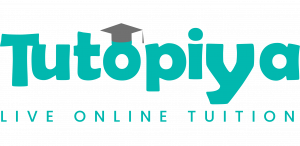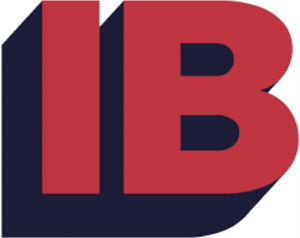The IB curriculum is not commonly taken by the local students in Singapore, but they are allowed to sit as a private candidate or enter Junior Colleges that offer the IB curriculum in their tertiary institutions. That being said, due to the lack of a number of students taking the IB curriculum in Singapore, you may wonder, where do I look for IB tuition in Singapore then?
This article will cover the following
– What is the IB curriculum?
– How will IB tuition in Singapore help?
– The IB curriculum – assessment & format
– Why study the IB curriculum?
What is the IB curriculum?
The International Baccalaureate Diploma is also known as the IB – is one of the fastest-growing and most respected qualifications in the world. It is the pathway for you to enter the best universities and is a qualification that challenges, encourages as well as inspires internationally-minded students like you to become critical thinkers and ready for university and achieve a globally focused career. Its IB curriculum may be difficult for some to fathom, however, there are always online IB tutors in Singapore who could assist and help you achieve those perfect scores.
With this IB education Diploma being an internationally recognised programme – it is obtained after two years of studying within the course of six terms. It’s IB curriculum is extremely demanding as well as rewarding and it encourages you to think independently and explore your creativity.
How will IB tuition in Singapore help?
Private tutoring can help identify and help developing students overcome their weaknesses. At Tutopiya we are able to help you with IB Essay writing, Languages, Sciences and Mathematics.
Additionally, Tutopiya specializes in providing convenient and easily accessible online tuition to our students. You can meet your tutor online anywhere and at any time. Tutopiya will also match you with a tutor that best suits your needs in learning. Our IB tutors are experienced, trained and professional in the curriculum and subject.
The IB Curriculum
IB Students are able to choose from one subject from each of the six compulsory groups. This is in addition to the IB programme includes extended essay writing which is an in-depth essay related to one of the subjects the student would choose. IB students would also gain the theory of knowledge where students are able to reflect on the nature of knowledge by examining areas such as perception, emotion, and historical aspects which ultimately encourages students to become more creative. This would help students in junior college to achieve their perfect scores.
The six groups in which the IB curriculum is comprised are :
1 – Language Acquisition
2 – Language and Literature studies
3 – The Arts
4 – Individuals and Societies
5 – Experimental Science
6 – Mathematics and computer science
In addition to helping you understand what IB entails, we have noted a few questions along with an answer for you to know all aspects of the IB Diploma.
The number of subjects?
IB students would be expected to study three different subjects for the two years course. For some specialist course combinations such as Further Maths, you might study four subjects.
Subject studied?
You must choose one subject from each of the groups ensuring experience in Languages, Social Studies, Experimental Science and Mathematics. Your sixth subject may be an Arts subject chosen from group 6. Alternatively, you can choose to take another subject from one of the groups 2-4 so you can specialize in a specific field of study.
In addition to these six subjects, you also study three core areas that help your academic study and broaden your education.
The Theory of Knowledge
IB students are able to critically evaluate any form of knowledge. The core models would then encourage you to question and engage in real-world comparison and critical thinking.
Extended Essay
IB students are required to undertake a research project and write up a 4000-word essay based on a personal theme. (Much like a university dissertation)
Creativity
The IB curriculum is a program that helps you become a more reflective and open-minded individual.
How are you assessed?
Subjects are assessed through both internal and external coursework which is written or practical work that the IB students complete during the year and which counts towards your overall grade. You would also be taking the IB examinations at the end of year 2 in May/June. This would ensure that all IB students are well prepared.
When will the results be published?
IB results are published every July. IB diploma is marked on a numbered scale where all six subjects are markers out of seven. Where an additional three points could be gained through the extended essay and other subjects. In total it is vital to score at least twenty-four points. However, the highest academic grade you are able to get would be a score of forty-five points which is the equivalent qualification to achieving an A* at A-Levels.
Why should you study the IB curriculum?
IB students develop strong academic, social and emotional characteristics. As an IB student, you are also likely to perform well academically – often better than students studying different programmes. You will also become more culturally aware and be able to better engage with people, as well as inspiring your own independent thinking.
The IB is ideal for students aged 16+ who have broad interests. If you wish to develop beyond the traditional boundaries offered by other academic programmes, enjoy a broad subject range and independent research, the IB would be a great choice. It is for students who enjoy independence and want to enrich their studies inside and outside the classroom.
While there are many great resources accessible online, having a personalised plan and dedicated tutor can help you better ace your IB Exams. Tutopiya offers a free trial for all students; sign up today to experience online IB tuition.

Nuha Ghouse
Nuha Gouse is the Co-founder of Tutopiya and is equipped with a first class honours Math degree from Imperial College, London. Her mission is to provide personalized individual lessons online where students from around the world can learn at their own pace and convenience.




